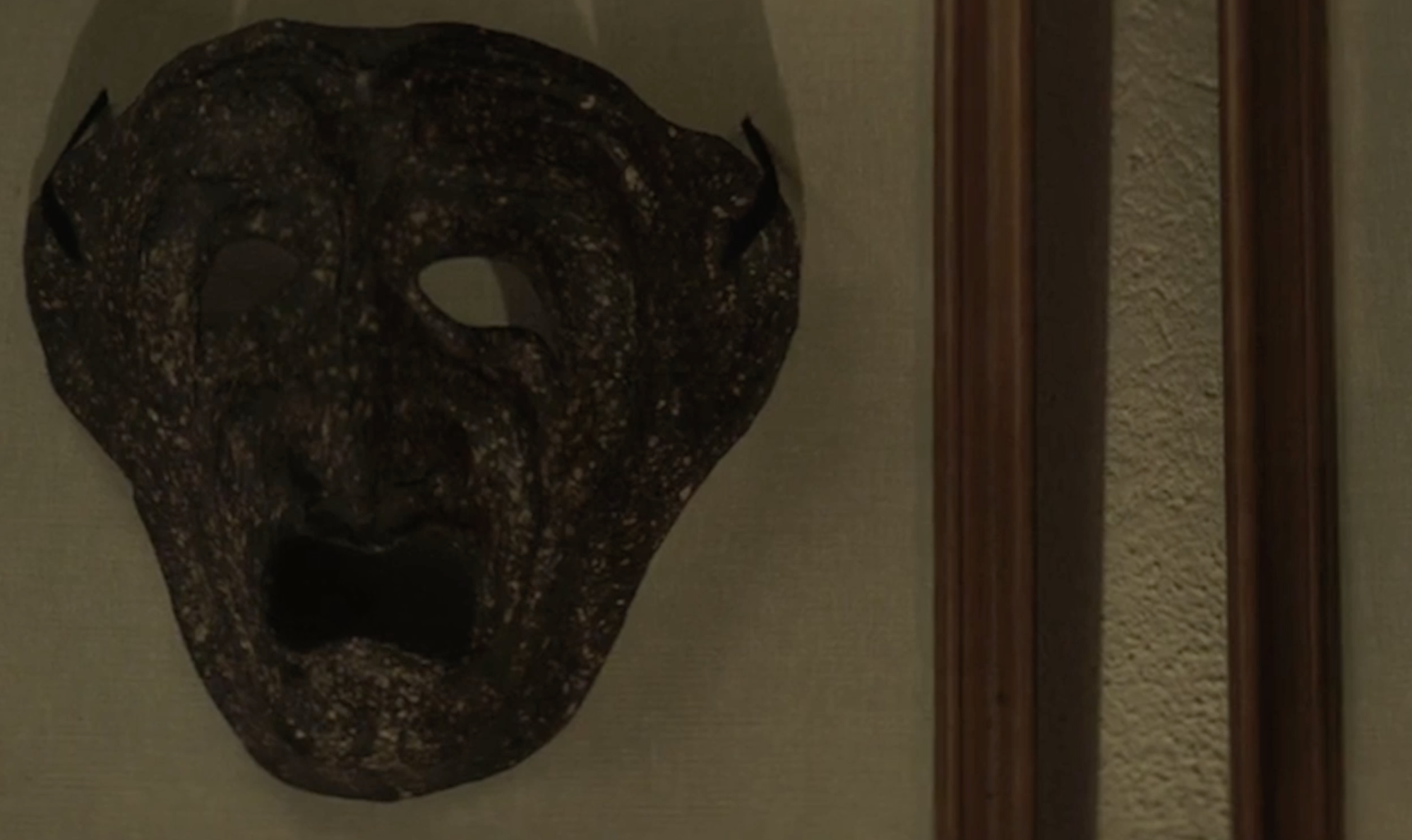Why Wear the Mask?
by Cade Miller
Please read the crafter statement before watching the video essay. Note that major spoilers are present in both the statement and the video essay. Thank you.
Oriol Paulo’s The Invisible Guest was released in Spain on January 6, 2017, with subsequent releases in Latin America and Asia. Its central storyline revolves around Adrián Doria, a young businessman who has been accused of the murder of his mistress. Adrián protests his innocence and hires a witness prepper named Virginia Goodman to craft his account of what happened the night his mistress died. As Virginia interviews Adrián, it soon becomes clear that the mistress’s demise is not the only death relevant to his story. A car crash years ago- and the subsequent death of one Tomás Garrido- grows steadily more important to Adrián’s defense and Virginia’s inquisition over the course of the evening. As more details are revealed about Adrián’s past, his charismatic exterior is gradually peeled away to reveal his ambitious and conniving true nature. Virginia eventually forces him to admit that he shoved Tomás’s car into a lake to hide evidence of the crash (even after he saw that Tomás was still alive), used his media connections to frame Tomás as an embezzler who had fled the country, forced his mistress to take part in his deceptions, and eventually killed his mistress when she threatened to reveal the truth. As Adrián’s mask comes off, so too does Virginia’s. She reveals in the final moments of the film that she is not Virginia Goodman, but rather Elvira Garrido, the mother of Tomás in disguise- and Adrián has unknowingly spent the entire night confessing his crimes to her.
Though he is not the hero of the story, Adrián Doria is the central character of The Invisible Guest, with Virgina/Elvira serving as a deuteragonist. But despite the amount of focus on him, the audience doesn’t learn the truth of Adrián’s personality until the full story of the deaths of Tomás and his mistress has completely unfolded very late in the film. For much of the movie, Adrián hides behind the image of a morally upright victim of conspiracy. As cracks in his initial story begin to appear and he is forced to admit half-truths about his actions, he changes his persona to one of a desperate man dragged into sin by his Lady Macbeth of a mistress. And when it finally becomes clear that Virginia sees through every one of his deceptions, he devolves to a screaming bully insisting that regardless of the truth, Virginia is meant to protect him from punishment.
Even when the truth is out, Adrián clings to the false identities he has built, confident that his wealth and power will help him evade all consequences. The first half of my video essay closely follows the lines of The Invisible Guest itself in tracking this mentality and dissecting Adrián’s true self.
In many ways, The Invisible Guest is a remarkably straightforward movie despite the plot twists it is so enormously dependent on. The classic conventions of the mystery genre- an impossible crime, an obvious suspect who nonetheless protests their innocence, an intrepid investigator looking into said suspect’s claims of innocence, red herrings, and a storyline that steadily darkens as it unfolds- remain unchanged in this particular mystery story. While their identities and motivations are played with more compared to other mystery films, a clear dichotomy between hero and villain has been established by the end of the story, and the hero lives happily ever after while the villain is brought to justice. For a movie that focuses so much on masks and deception, the morality of The Invisible Guest seems very black-and-white. The actions of Daniel and Elvira Garrido are portrayed as heroic and morally justified, even when they are stalking the real Virginia Goodman in order to steal her identity. And while Adrián’s concealment of his true identity is seen as monstrous, the implications of Elvira’s deceptions are barely explored. For the second half of my video essay, I have chosen to address what The Invisible Guest did not: the dark paths vengeance can lead the bereaved on, and the morally ambiguous actions that may be required to bring justice to the powerful.
Works Cited
- Detective-Mystery Films, Filmsite, 2010.
- “Genre – Mystery.” AllMovie, 2013.
